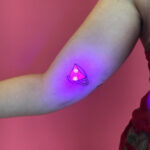Congratulations on your new tattoo! Proper aftercare is crucial to ensure your tattoo heals correctly, looks vibrant, and lasts for years to come. While the tattooing process is an art form, aftercare is a science, and choosing the right lotion plays a significant role in this process. Many artists have different recommendations, but focusing on simplicity and gentle products is generally the best approach. This guide will explore the best lotions for tattoos, offering advice on what to look for and what to avoid to keep your new ink looking its best.
Why Lotion is Essential for Tattoo Aftercare
Think of your new tattoo as an open wound, albeit a beautiful one! The skin has been traumatized, and it needs to heal. Lotion isn’t just about moisturizing; it plays several vital roles in tattoo aftercare:
- Hydration: Tattooed skin can become dry and itchy as it heals. A good lotion keeps the skin hydrated, preventing excessive dryness and cracking, which can damage the tattoo.
- Promotes Healing: Certain ingredients in lotions can aid the skin’s natural healing process. Keeping the area moisturized creates an optimal environment for cell regeneration.
- Reduces Itching and Scabbing: Dryness leads to itching, and scratching can damage a healing tattoo, potentially causing ink fallout or scarring. Lotion helps to alleviate itchiness and keeps scabs soft and less likely to be prematurely picked off.
- Enhances Color Vibrancy: Properly moisturized skin helps the tattoo ink settle and remain vibrant over time. Dry, neglected skin can make tattoos appear dull and faded.
Key Ingredients to Look For in the Best Tattoo Lotion
When choosing a lotion for your tattoo, focus on gentle, non-irritating ingredients. Here are some key features to prioritize:
- Fragrance-Free: This is paramount. Fragrances are a common irritant and can cause allergic reactions, especially on compromised skin. Avoid anything with “fragrance,” “parfum,” or “essential oils” listed in the ingredients.
- Hypoallergenic: Look for lotions labeled hypoallergenic, meaning they are formulated to minimize the risk of allergic reactions.
- Non-Comedogenic: This means the lotion won’t clog pores. While less of a concern for tattoos on the body, it’s still a good general quality to look for, especially if your tattoo is in an area prone to breakouts.
- Natural and Gentle Ingredients: Lotions with natural ingredients like aloe vera, shea butter, cocoa butter, and vitamin E can be very beneficial for healing skin. These ingredients are known for their soothing, moisturizing, and skin-repairing properties.
- Water-Based: Lighter, water-based lotions are generally preferred over heavy, oil-based ones, especially in the initial healing stages. They allow the skin to breathe and don’t create an overly occlusive barrier.
Top Lotion Recommendations for Tattoo Aftercare
Based on artist recommendations and user experiences, here are some excellent lotion options for tattoo aftercare:
-
Fragrance-Free Curel Daily Healing Lotion: This lotion is frequently recommended by tattoo artists and for good reason. It’s lightweight, fragrance-free, hypoallergenic, and specifically designed for sensitive skin. Its water-based formula absorbs quickly and provides excellent hydration without feeling greasy. It’s a readily available and affordable option that ticks all the boxes for tattoo aftercare.
-
Lubriderm Daily Moisture Fragrance-Free Lotion: Similar to Curel, Lubriderm Fragrance-Free is another dermatologist-recommended lotion that is gentle and effective for sensitive skin. It’s non-greasy, absorbs well, and provides long-lasting moisture, making it a solid choice for tattoo healing.
-
Aveeno Daily Moisturizing Lotion: Aveeno is known for its soothing oatmeal-based formulas, which are excellent for calming irritated skin. Their Daily Moisturizing Lotion is fragrance-free and hypoallergenic, offering gentle hydration and relief from itching.
-
Tattoo-Specific Balms and Salves: Many tattoo artists and companies offer specialized balms and salves formulated specifically for tattoo aftercare. These often contain a blend of natural ingredients like shea butter, beeswax, and essential oils known for their healing and moisturizing properties (be sure to double-check they are fragrance-free, or use essential oils in very low concentrations if you are not sensitive). Examples include brands like Mad Rabbit, Tattoo Goo, and Hustle Butter Deluxe. While often pricier than drugstore lotions, these are formulated with tattoo healing in mind.
-
Natural Oils (Used Sparingly): For some, natural oils like coconut oil, jojoba oil, or vitamin E oil can be beneficial in small amounts, especially once the initial healing phase is over. Vitamin E oil, in particular, is known for its skin-rejuvenating properties and can be found in many skincare products. However, oils can be occlusive if used excessively, so use them sparingly and ensure they are fragrance-free and pure.
Lotions and Ingredients to Avoid After Getting a Tattoo
Just as important as knowing what to use is knowing what to avoid. Certain lotions and ingredients can hinder healing and potentially damage your new tattoo:
-
Scented Lotions: As mentioned earlier, fragrances are a major no-no. They can irritate the sensitive, healing skin and lead to allergic reactions, redness, and itching.
-
Lotions with Dyes and Harsh Chemicals: Avoid lotions with artificial colors, parabens, and other harsh chemicals. These can irritate the skin and are unnecessary for tattoo aftercare.
-
Exfoliating Lotions: Lotions containing AHAs, BHAs, or retinoids are designed to exfoliate the skin. Exfoliation is the last thing you want for a healing tattoo as it can disrupt the healing process and potentially pull out ink.
-
Petroleum-Based Products (Like Vaseline and Aquaphor – Use with Caution): While petroleum jelly creates a barrier that can protect from external irritants, it’s also very occlusive. Products like Vaseline and Aquaphor can trap moisture and prevent the skin from breathing, potentially leading to soggy scabs, delayed healing, and even ink fallout. Aquaphor, in particular, was once a popular recommendation, but many artists now advise against it for routine aftercare due to its thickness and occlusive nature. Some people find Aquaphor helpful for the first 24-48 hours in a very thin layer, but prolonged use is generally discouraged.
-
Antibacterial Ointments (Unless Specifically Recommended): While keeping your tattoo clean is important, using antibacterial ointments like Neosporin routinely is generally not recommended unless specifically advised by your tattoo artist or a doctor for signs of infection. These ointments can sometimes be too harsh and can also create an overly moist environment. Gentle washing with fragrance-free soap is usually sufficient for keeping the tattoo clean.
Beyond Lotion: Essential Tattoo Aftercare Tips
While choosing the right lotion is crucial, it’s just one piece of the tattoo aftercare puzzle. Here are other key steps to ensure proper healing:
- Keep it Clean: Gently wash your tattoo 1-2 times a day with a fragrance-free, antibacterial soap (like Dial Gold Liquid Soap, as mentioned in the original article, or a gentle, fragrance-free facial cleanser). Pat it dry with a clean paper towel – avoid terrycloth towels in the initial stages as they can harbor bacteria.
- Don’t Overwash: Overwashing can dry out the skin and hinder healing. Stick to washing only when necessary, such as after activities that cause sweating or potential exposure to dirt.
- Apply Lotion Sparingly: A thin layer of lotion is sufficient. Over-moisturizing can be as detrimental as under-moisturizing. The skin needs to breathe.
- Avoid Sun Exposure: Sunlight is the enemy of tattoos, especially new ones. It can cause fading and damage. Keep your tattoo covered and out of direct sunlight during the healing process and use sunscreen (SPF 30+) on healed tattoos to maintain their vibrancy long-term.
- Wear Loose Clothing: Avoid tight clothing that can rub against your new tattoo and cause irritation or prevent airflow.
- Don’t Pick or Scratch: Itching is a normal part of the healing process, but resist the urge to scratch or pick at scabs. This can lead to ink loss, scarring, and infection.
- Stay Hydrated: Drinking plenty of water helps keep your skin hydrated from the inside out, which aids in overall healing.
Conclusion: Nurturing Your Ink with the Right Lotion
Choosing the best lotion for your tattoo is a crucial step in ensuring proper healing and long-term vibrancy. Prioritize fragrance-free, hypoallergenic options with gentle, moisturizing ingredients. Avoid harsh chemicals, fragrances, and overly occlusive products like heavy petroleum-based ointments. Remember that less is often more – a thin layer of the right lotion, combined with proper hygiene and aftercare practices, will help your tattoo heal beautifully and remain a stunning piece of art for years to come. When in doubt, always consult your tattoo artist for personalized aftercare advice – they are the experts on their craft and your skin!

